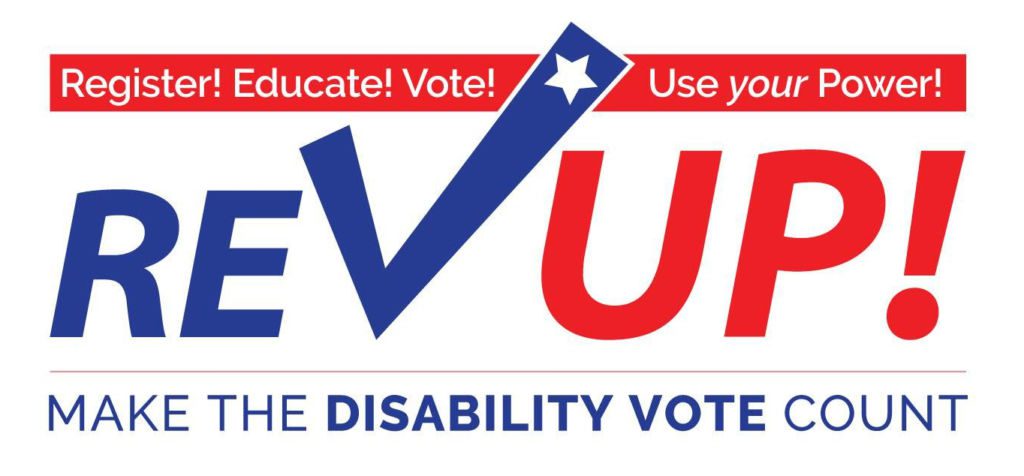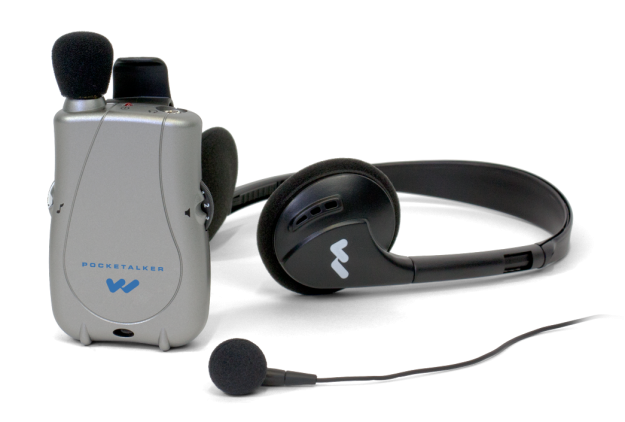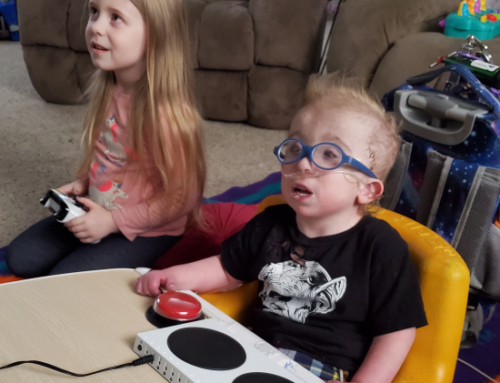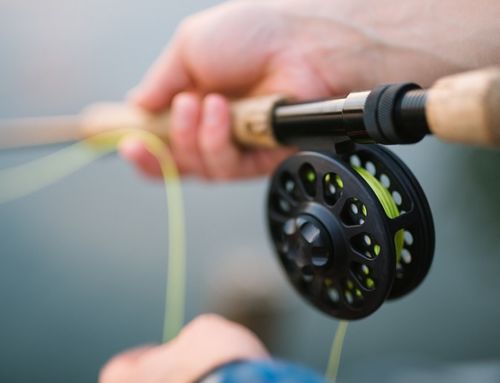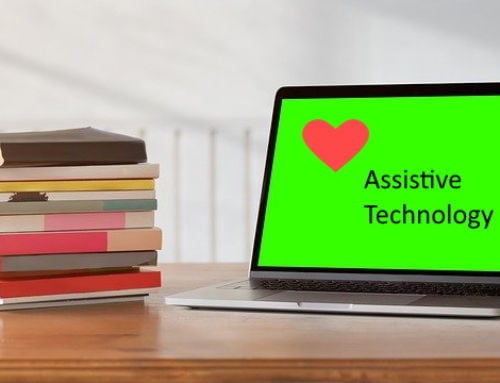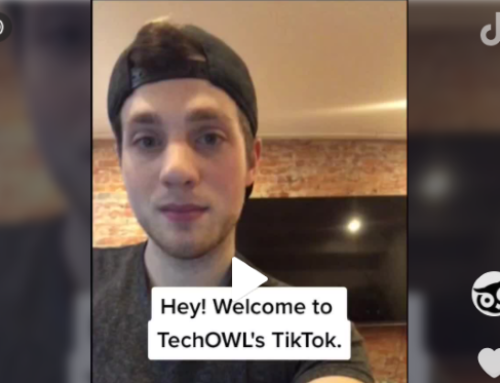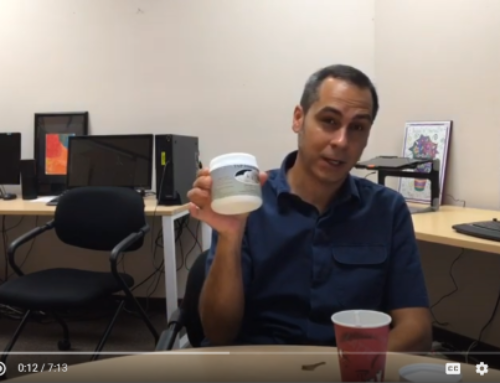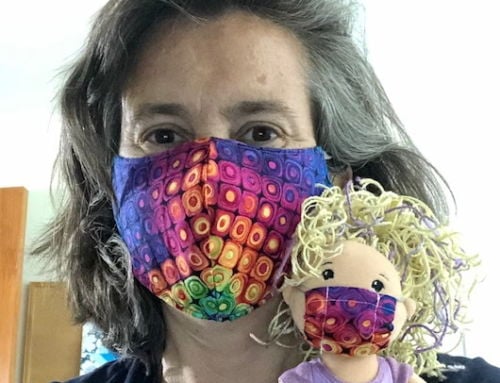A Dream Realized – Assistive Technology Makers’ Fair 2018
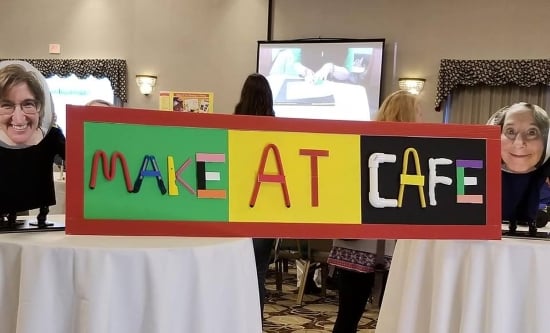
The assistive technology (AT) maker movement took a decisive step forward last month when leaders came together to share projects and approaches and remind us all to keep thinking outside the marketplace!
“It was a dream come true,” says Therese Willkomm, founder of the first annual Assistive Technology Makers’ Fair that took place September 29th in New Hampshire. “Close to 200 people came from all over, the energy was so positive, and people said they wished they could clone themselves to attend more sessions!”
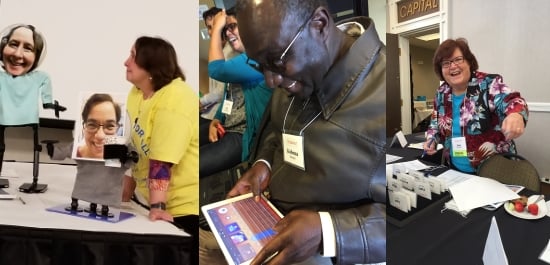
Left to right: Therese Willkomm (Director, ATinNH) did manage to clone herself throughout the Fair, Kobena Bonney (MassMATCH coordinator) enjoys a homemade tactile overlay to play a guitar app, and Amy Goldman (AT3 Center) welcomes registrants.
The day may have been the first of its kind in the eastern U.S. Held at the Grappone Conference Center in Concord, NH, the Fair showcased a diverse array of AT maker initiatives and organizations, while placing an equal emphasis on providing opportunities for attendees to make AT for themselves or people they know or work with who experience disabilities.
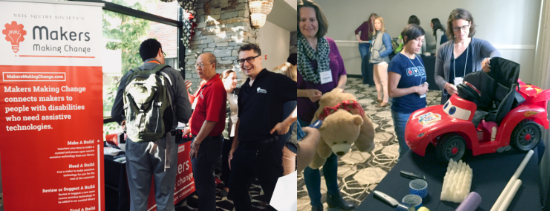
Left: Chad Leaman of the Vancouver-based Makers Making Change. Right: GoBabyGo! NH workshop attendees adapting toy cars for young children with disabilities.
The result was a conference that had the feel of a make-a-thon. Willkomm, who is something of a maker-movement in and of herself, wouldn’t have it any other way. “When people need AT,” she says, “they shouldn’t have to wait around for a purchase order!”
The morning kicked off with keynotes by Dr. Willkomm and Bill Binko, founder of ATMakers.org. Binko has experience as both an AT vendor (co-founder of LessonPix) and AT industry disrupter with his open-source 3D printed switches and dedication to connecting robotics students to families needing assistive equipment (learn more about Binko). Dr. Willkomm, author of multiple volumes of AT maker projects, is the diva of making in the state AT program network with over 25 years’ experience creating low-cost quick-to-assemble devices for solving everyday problems.

Stacy Driscoll, Coordinator of ATinNH (headshot on left) and Therese Willkomm (headshot on the right) invite us to get playful and creative.
That strength was in evidence at the Fair’s Make AT Café. Among eleven tables in the ballroom were four dedicated to hands-on making: for Reading and Writing, Hearing and Communication, Vision Loss, and Eating and Drinking. Half-hour Make AT Café time blocks alternated with 45-minute break-out sessions to cycle attendees into fabricating. And the next generation of makers was everywhere. Dr. Willkomm’s University of New Hampshire occupational therapy students staffed the stations ready to guide visitors through each of 30 kits provided. (“Next time I’d like a station of expert builders so people with unique problems to solve can be sure to get their needs met,” Willkomm mused during an event debrief.)
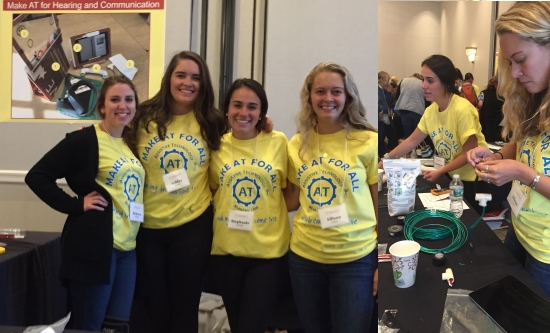
The Make AT for Hearing and Communication team
Multiple State AT Programs were in on the action. WATR, the Wyoming AT program, donated 100 water bottles so attendees could create holding and mounting solutions. The Make AT for Eating and Drinking station offered six suggestions, and QR codes throughout the event connected builders to video instructions for more assistance during and after the Fair.
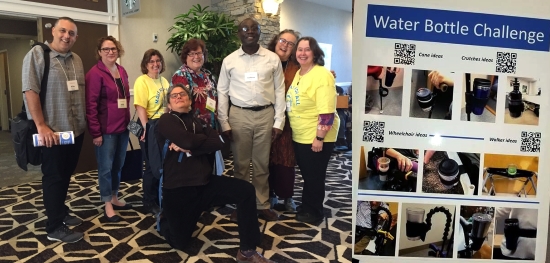
Left: State AT Program representatives, Mike Marotta, Kelly Charlebois, Stacy Driscoll, Amy Goldman, Kobena Bonney, Kim Singleton, Therese Willkomm, and Eliza Anderson [on one knee]. Right: a poster displayed at the Make AT for Eating and Drinking station.

A unique customized scooter made from tri-wall cardboard.
Mike Marotta, Director of the New Jersey AT Program (ATAC) presented on “Pi for Everyone,” an emerging collaboration with school districts to create Raspberry Pi AT for NJ residents with disabilities. These are low-cost higher-tech devices that can provide an opportunity for young people to learn to code, make a difference for real families, and learn about disabilities.
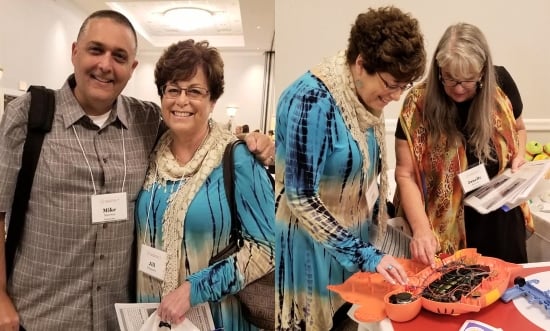
Left: Mike Marotta (Director of ATAC) and Jill Pleasant (Director of AzTAP). Right: Jill and Janelle Bauerle (also from AzTAP).
Janelle and William Bauerle of the Arizona Technology Access Program (AzTAP) presented on how to adapt various toys for use with different switches, beyond a simple battery interrupter! Their Make AT Cafe table also engaged visitors with tips and tricks for soldering and securing connections. Janelle Baurele coordinates the AT Lending Library managed by AzTAP for the Arizona Department of Education.
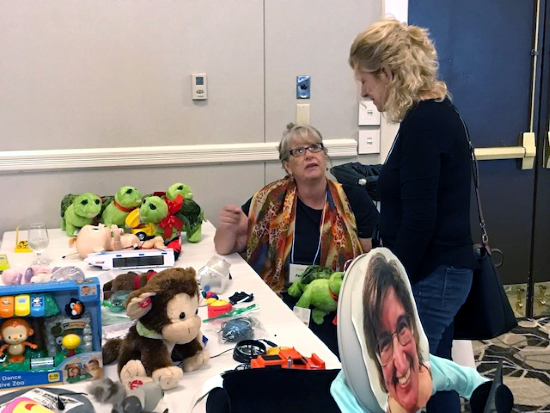
Janelle Bauerle speaks with a Fair attendee at the Toy Adaption Showcase table in the Make AT Cafe.
Willkomm and Driscoll are thankful to all the partners, sponsors, and planning committee members who teamed with ATinNH to figure out how to bring Willkomm’s vision to fruition. “We could not have done it on our own,” they emphasize.
Among the sponsor booths were the Rhode Island and Massachusetts AT Programs. MassMATCH saw two of their AT Advisory Council members attend, including Phil Kongtcheu. Kongtecheu is working to create an AT maker space in Cambridge MA with an emphasis on serving makers with disabilities. The Fair, he says, gave him a lot of ideas.
“Wouldn’t it be totally cool to have a place like what we had at the Maker Fair open every day?” he reflected in an email following the event. “Where you can go anytime to check what is being done and to get stuff done?”
And so the maker movement continues…
Monthly Blog Digest
Search the blog
State AT Program Blogs
California
Florida
Indiana
Kentucky
Louisiana
Maryland
Massachusetts
Michigan
Montana
North Carolina
North Dakota
Utah
State AT Program Blogs
The AT3 Center, the Association of AT Act Programs (ATAP), and the Administration on Community Living (ACL) make no endorsement, representation, or warranty expressed or implied for any product, device, or information set forth in this blog. The AT3 Center, ATAP, and ACL have not examined, reviewed, or tested any product or device hereto referred.

